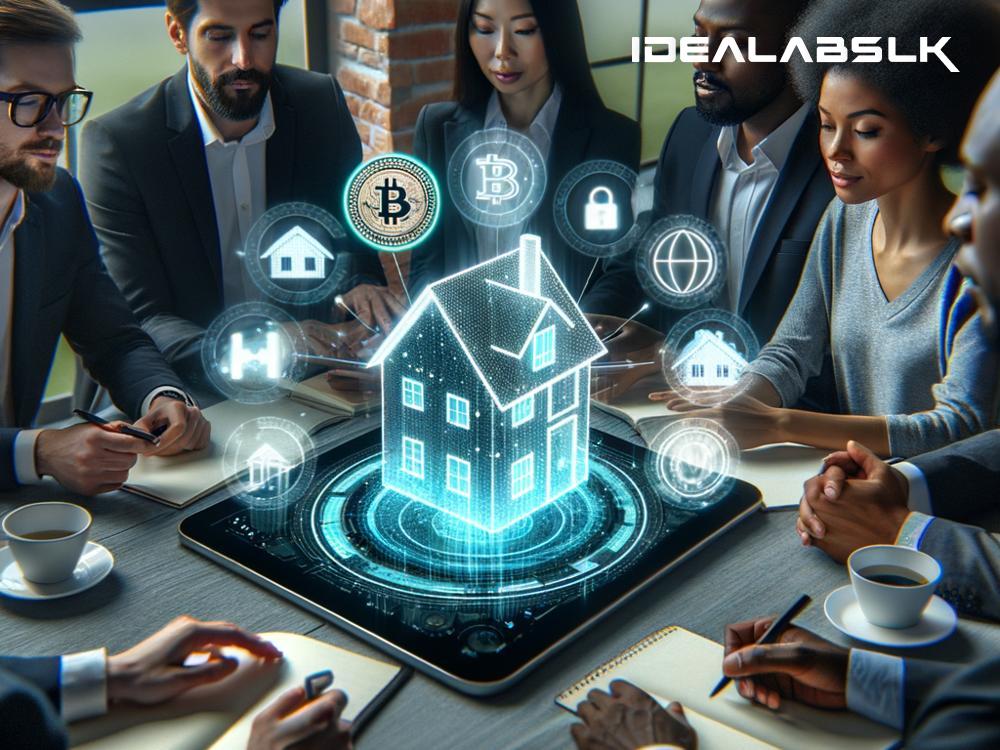How Blockchain is Changing the Future of Real Estate Transactions
In the world of buying and selling homes and properties, a new player has entered the game that is set to change the rules entirely. This game-changer is called blockchain, and if you've not heard about it yet, brace yourself to discover how it's revolutionizing the future of real estate transactions.
Understanding Blockchain
First things first, let's break down what blockchain is in the simplest terms. Imagine a virtual ledger or a record book that is accessible by many people at once. This ledger keeps track of all transactions made, and once a transaction is recorded, it cannot be altered or deleted. This quality makes blockchain incredibly secure and transparent.
Why is Blockchain a Big Deal for Real Estate?
Real estate transactions have traditionally been slow, paperwork-heavy, and, let's face it, a bit of a headache at times. There are numerous steps involved, from signing contracts to transferring property titles, and most of these processes rely on middlemen like lawyers and brokers. Blockchain, by its nature, offers solutions to many of these challenges, making transactions faster, more secure, and less dependent on intermediaries.
1. Making Transactions Lightning Fast
One of the standout features of blockchain is its ability to speed up transactions dramatically. Because blockchain operates 24/7 and doesn't require the traditional business hours to process documents, sales that used to take weeks or months can be completed in days or even minutes. This is not just convenient but also reduces the holding costs for sellers.
2. Cutting Down Costs
By eliminating the need for lots of middlemen, blockchain can significantly reduce transaction costs. Each intermediary in a traditional real estate transaction typically takes a cut for their services. Blockchain's ability to automate these processes through smart contracts (contracts that execute automatically when their conditions are met) decreases the need for these intermediaries, potentially saving everyone involved a lot of money.
3. Enhancing Security and Transparency
In real estate transactions, the fear of fraud is real. Blockchain comes to the rescue with its inherent security features. Since each transaction is encrypted and indelibly recorded on a blockchain, tampering with records or creating false ones becomes nearly impossible. Moreover, the transparency of blockchain gives every party involved in the transaction access to the same information, leading to improved trust among buyers, sellers, and other stakeholders.
4. Tokenization of Real Estate Assets
Imagine being able to own a piece of a property just like you would own shares in a company. Blockchain makes this possible through tokenization, which turns real estate assets into digital tokens that can be bought and sold. This opens up the investment market to a wider pool of investors who can now afford to invest in real estate in smaller, more manageable chunks. It also makes the buying and selling process far more straightforward and efficient.
5. Streamlining Title Management
The history and ownership records of properties, known as titles, are crucial in real estate transactions. Blockchain can simplify title management by providing a single, immutable record of a property's history. This not only makes it easier to verify ownership but also reduces the risk of title fraud, a concern in many parts of the world.
The Road Ahead
The integration of blockchain in real estate is still in its early days, but the potential benefits it brings to the table are undeniable. As technology continues to evolve and more stakeholders warm up to its adoption, we can expect to see blockchain becoming a staple in real estate transactions.
In conclusion, blockchain is not just changing the future of real estate transactions; it's setting the stage for a more efficient, secure, and inclusive real estate market. Whether you're a buyer, seller, investor, or just someone interested in the future of real estate, keeping an eye on this revolutionary technology might give you a glimpse into the future of buying and selling properties.

